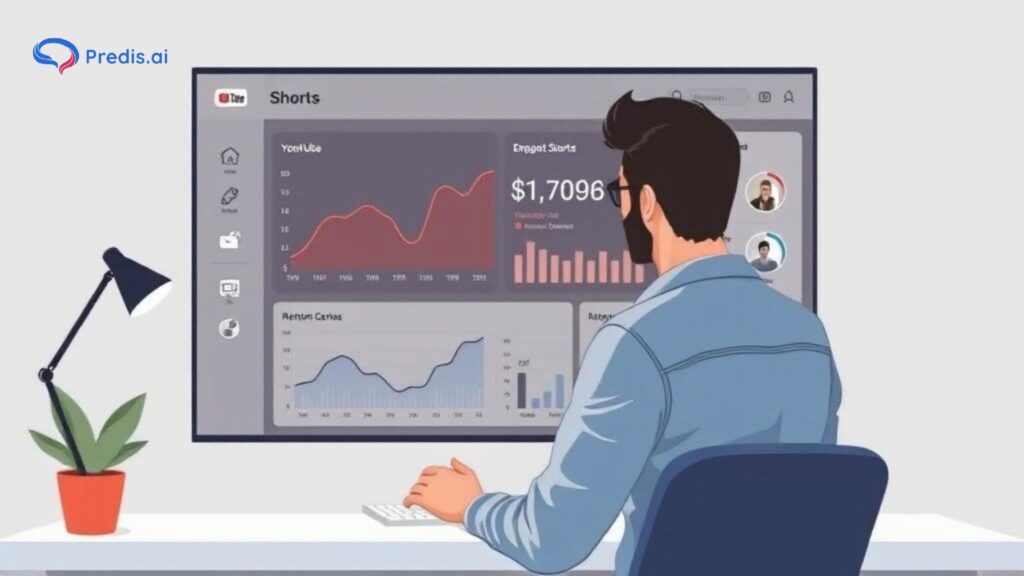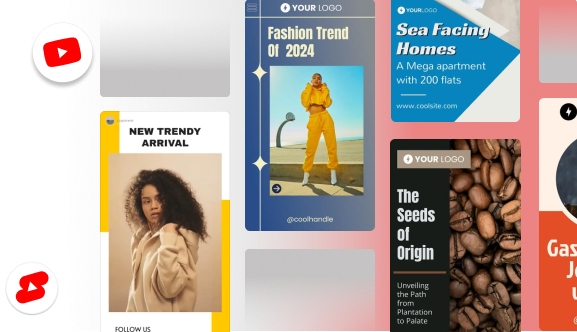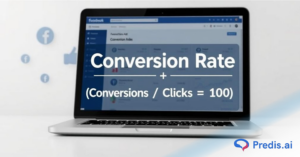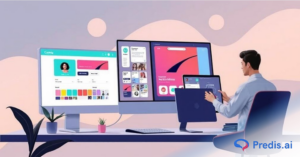YouTube Shorts has become one of the most powerful tools for creators and brands to boost visibility in the age of short-form video. With over 200 billion daily Shorts views, understanding how to analyze performance isn’t just helpful; it’s essential for growth.
Whether you’re a small business trying to reach new audiences or a content creator aiming to increase engagement, learning to analyze and improve your Shorts performance can turn casual views into loyal followers.
In this guide, we’ll break down how to:
- Identify key YouTube Shorts metrics that matter most.
- Analyze data to find what’s working and what’s not.
- Implement actionable strategies to improve future Shorts.
- Use AI tools like Predis.ai’s AI Video Generator and Social Media Scheduler to streamline your video workflow.
Why YouTube Shorts Matter for Growth?
Short-form video has changed the way people consume content. The rise of platforms like TikTok, Instagram Reels, and YouTube Shorts means users expect quick, engaging, and authentic storytelling.
For small businesses, Shorts provide a level playing field; you don’t need massive budgets to get noticed. YouTube’s algorithm rewards creativity and retention, meaning even smaller creators can reach millions organically.
According to some statistics, over 57% of Gen Z use short-form video platforms to discover new products. This makes Shorts a powerful discovery engine, especially when optimized with data-backed insights.
Key YouTube Shorts Metrics to Track
Understanding the right metrics is the foundation of improving performance. YouTube offers detailed analytics that can help you decode what’s resonating with your audience.
1. Views
Views give you a baseline of reach. However, not all views are equal. Focus on how long people watch and where they drop off if you are not getting views on your YouTube Shorts.
2. Watch Time
This is one of the strongest indicators of content performance. The longer viewers stay, the more likely YouTube is to promote your Shorts to new audiences.
3. Audience Retention
Check when viewers stop watching. A dip in retention around the first 3–5 seconds often means your hook needs improvement.
4. Likes, Comments & Shares
These engagement metrics show how much your audience connects with your content. High engagement improves your Shorts’ discoverability.
5. Click-Through Rate (CTR)
If you use a call-to-action (like “Watch full video” or “Visit our store”), monitor CTR from the Shorts description or pinned comment.
6. Traffic Source
See whether your Shorts are reaching people via the Shorts feed, YouTube search, or external shares. This helps refine distribution strategies.
How to Analyze YouTube Shorts Performance? (Step-by-Step)
Let’s go through the process of analyzing your Shorts performance using YouTube Studio Analytics.
Step 1: Go to YouTube Studio
Navigate to Content → Shorts tab. You’ll find individual performance insights for each video.

Step 2: Check Audience Retention Graph
This visual shows where viewers drop off. You can find it in the Analytics tab. Focus on identifying trends:
- Do people leave early? Improve your hook.
- Does retention spike mid-way? Analyze what kept them engaged.
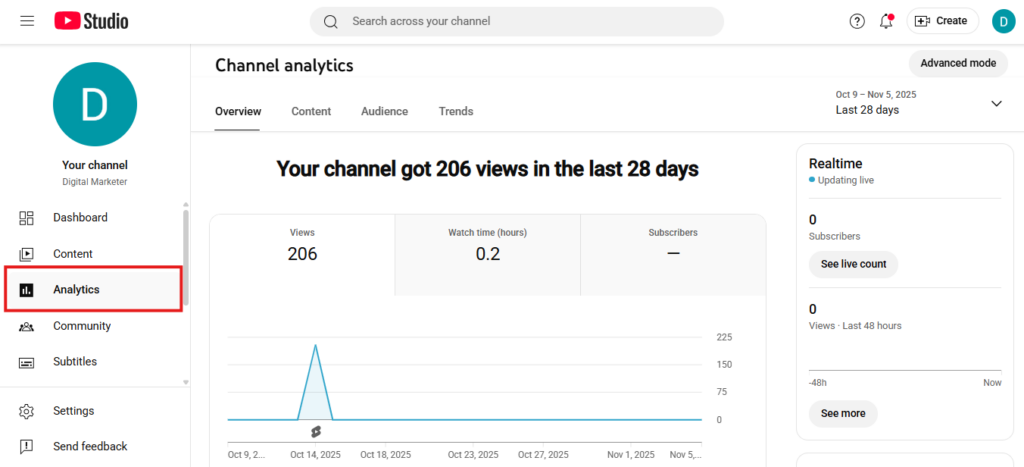
Step 3: Review Engagement and Comments
Comments are qualitative gold. They reveal audience sentiment and offer insight into what worked (or didn’t).
Step 4: Compare Shorts
Identify which Shorts have the best watch time and completion rate. Look for recurring factors: topic, tone, caption, or visual style.
Step 5: Monitor Traffic Sources
Use this to determine where your Shorts are performing best. If Shorts feed dominates, you’re optimized for discovery. If external traffic is high, you might benefit from cross-promotion.
💡 Pro Tip: Use external analytics tools like Predis.ai and TubeBuddy for deeper breakdowns on audience behavior, trending tags, and keyword performance.
Common Patterns That Indicate Strong or Weak Shorts
After analyzing dozens of successful Shorts, certain patterns emerge:
Winning Patterns
- Fast hooks within the first 1–2 seconds
- Captions or text overlays for silent viewers
- Strong visual motion and cuts every 2–3 seconds
- Emotional or surprise-based storytelling
- Consistent posting schedule
Weak Patterns
- Long intros or logos at the start
- Repetition without value
- Unclear storytelling or sound issues
- No caption or text aid
- Inconsistent upload frequency
Stand Out on YouTube Shorts with AI Content 🌟
Strategies to Improve YouTube Shorts Performance
Now that you understand what the data is saying, it’s time to optimize your Shorts.
1. Hook Viewers Instantly
The first few seconds determine retention. Start with motion, emotion, or a powerful statement.
2. Optimize Length
The sweet spot for Shorts is usually 15–30 seconds. Keep it concise and punchy.
3. Focus on Storytelling
Even in 15 seconds, every clip should have a beginning, middle, and end. Build curiosity early.
4. Add Captions
Over 20% viewers disable sound while watching Shorts. Adding captions increases completion rate and accessibility.
5. Maintain a Posting Rhythm
Consistency matters more than volume. Use tools like Predis.ai’s Social Media Scheduler to plan your content calendar and automate uploads.
6. Analyze, Iterate, Repeat
Each video teaches you something new. Review performance weekly, note what works, and double down.
How AI Tools Like Predis.ai Help You Optimize YouTube Shorts?
Data tells you what works, and AI helps you act on it faster.
Predis.ai offers a suite of AI-powered tools that simplify video marketing for businesses and creators alike.
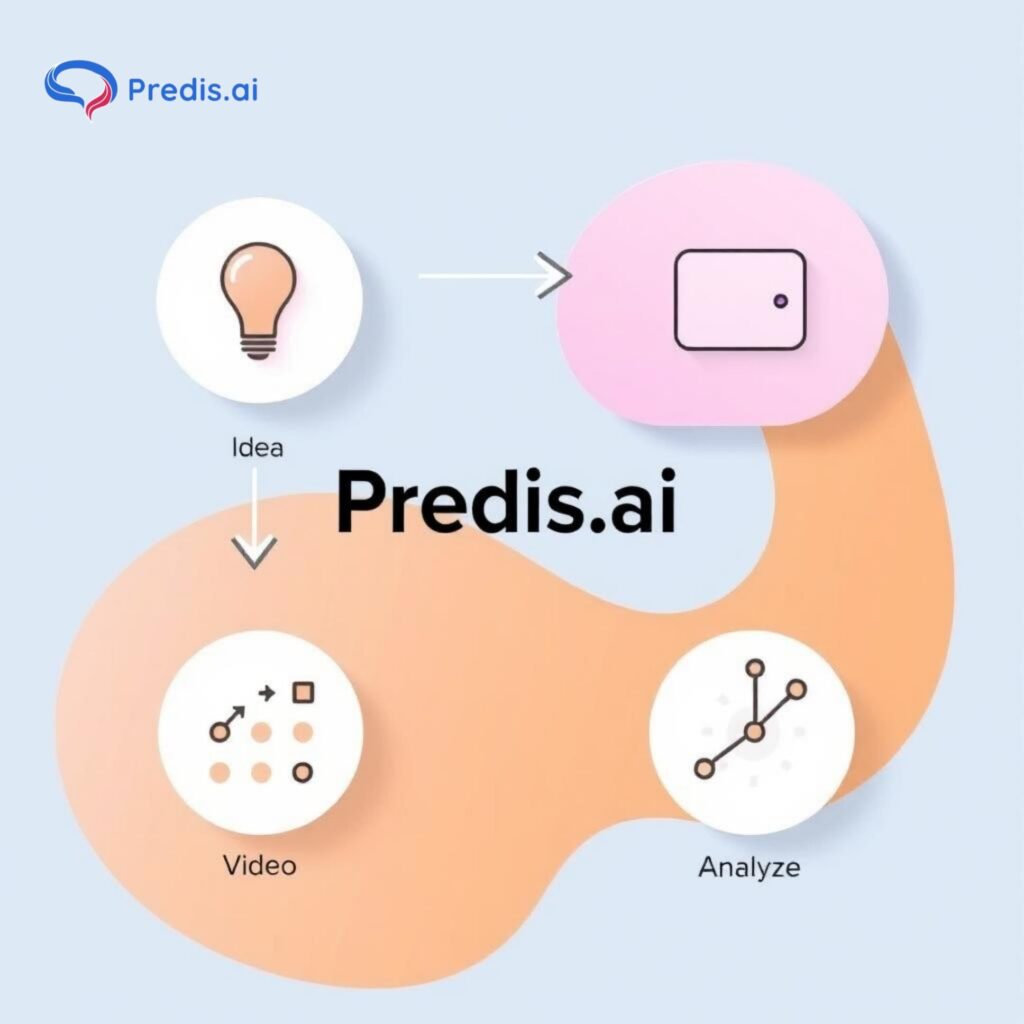
Here’s how it helps you improve your YouTube Shorts strategy:
- 🎥 Youtube Shorts Maker – Convert scripts, URLs, or ideas into engaging short videos. Perfect for testing multiple creative variations (A/B testing).
- 📅 Social Media Scheduler – Schedule your Shorts and other posts across platforms for consistent brand presence.
- 🤖 AI Ad Generator – Instantly generate ad copies and creatives tailored for YouTube ad campaigns.
Unlike traditional editing tools, Predis.ai merges creative generation, optimization, and posting, all powered by AI, helping you scale your content strategy efficiently.
Bonus: Turning Shorts Data into Actionable Insights
Performance data is only useful when it leads to action.
Here’s how to interpret insights effectively:
- Low Retention? Rework your intro or add faster pacing.
- High CTR but Low Watch Time? The topic is interesting, but the content might not deliver.
- Steady Growth? Stay consistent and experiment with similar formats.
Combine these insights with AI-driven recommendations to refine your next batch of Shorts faster.
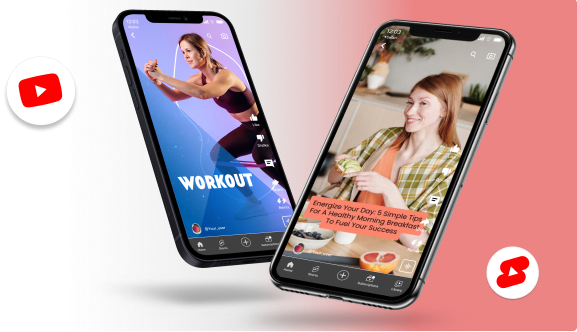
Conclusion
Analyzing and improving your YouTube Shorts performance isn’t just about watching numbers rise; it’s about understanding what your audience values and adapting your strategy to meet them there. When you interpret metrics like watch time, retention, and engagement, you start decoding what your viewers truly connect with. That’s how you transform raw data into creative direction.
Whether you’re a solo creator, a growing brand, or part of a marketing team, leveraging AI for YouTube ensures you spend less time on repetitive work and more time crafting ideas that matter. So, take your next step – open your analytics dashboard, study your top-performing Shorts, and then use Predis.ai to create your next batch of data-backed, high-performing content. Sign up now for a free trial.
FAQs
Go to YouTube Studio → Analytics → Shorts tab. You’ll find views, engagement, retention, and traffic data for every video.
Focus on watch time, retention rate, and engagement (likes, comments, shares). These influence how the algorithm promotes your Shorts.
Analyze retention drops, create stronger hooks, and maintain a consistent posting schedule. Use AI tools like Predis.ai Video Generator to quickly test variations.
Ideally, 3–5 times a week for consistent visibility. Tools like Predis.ai Scheduler make regular auto-posting easier.
Yes! AI tools can generate performance-based insights, suggest improvements, and even create optimized content variations.
Predis.ai automates short video creation, helps plan your content calendar, and allows direct scheduling, saving you hours each week.


